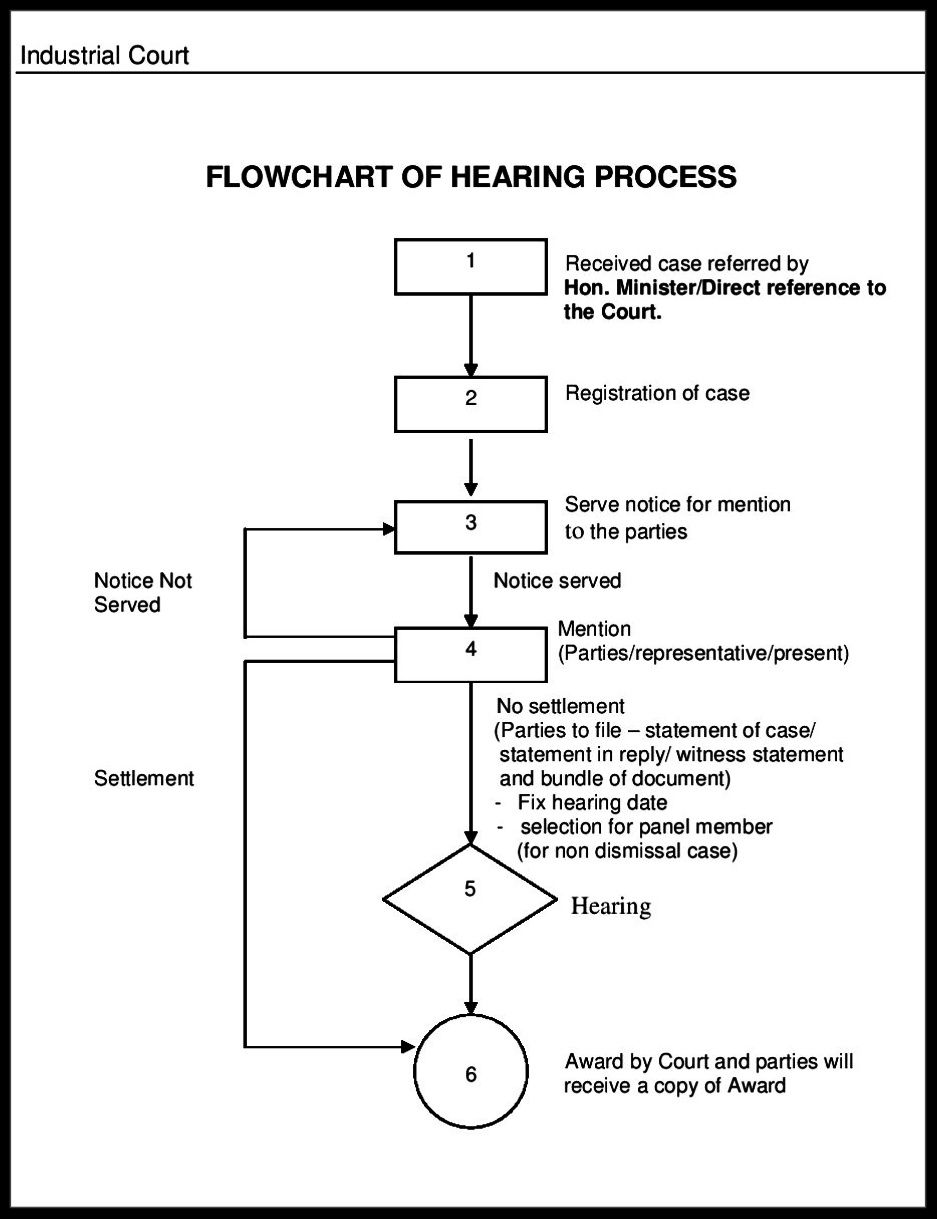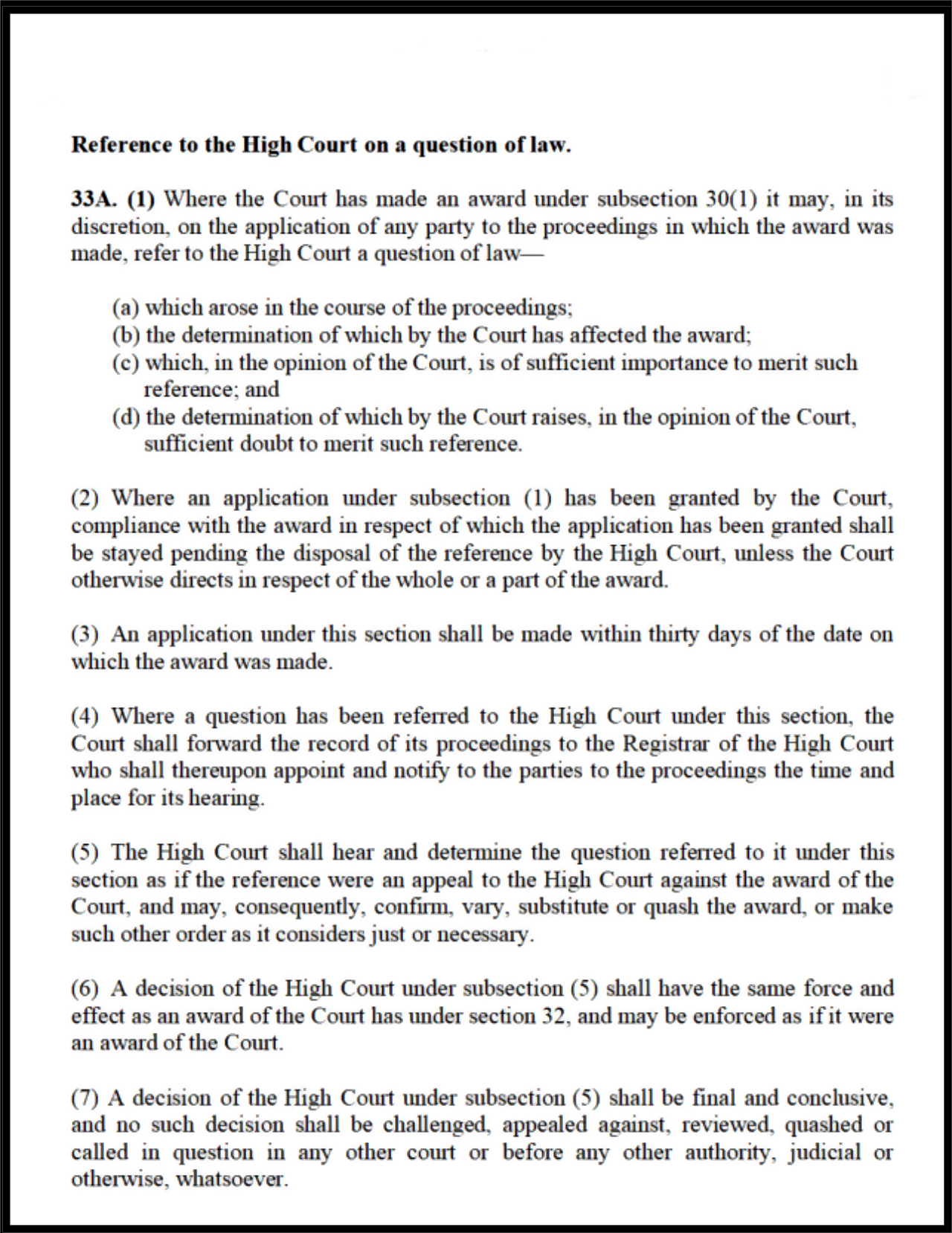Solving An Employment Dispute: Labour Court or Industrial Court?
See this article in Bahasa Malaysia.
Employer and employee are unlikely to have the same interest and stays in perfect harmony relationship. Worse, employer and employee have the potential to be involved in an employment dispute and becomes a court's case.
In Malaysia, 2 types of courts were established to solved employment-related disputes which are Labour Court and Industrial Court. So, what are the differences between these 2 courts? You are about to find out the details in this article!
Labour Court
Function
Labour Court falls under the jurisdiction of the Labour Department of Malaysia under (Section 69) of the Employment Act 1955.
Condition
The dispute case can be started by either employees or employers/public/agencies with conditions:
| Section Act | Type of Worker | Condition |
|---|---|---|
| (Section 69) of the Employment Act 1955 | Employees listed under the First Schedule of the Employment Act 1955. | The claim of wages or payment from working contract or any provision under the labor act. Confirmation or set aside any decision under S.14 (1). The case must be filed within 60 days from the date of the decision. |
| Employment Act 1955 | Employees with wages over RM 2000 but not exceeding RM 5000. | Wages or any other payment listed in employment contract. |
The Process
The process flow will be as follows:
1. The dispute claim by either party is accepted via letter/e-mail/walk-in or phone to the Department of Labour Peninsular Malaysia/Department of Labour Sarawak/Department of Labour Sabah.
2. The documents needed to claim including:
i. Name & the address of the claimant
ii. Name & address of the company
iii. The dispute case details
iv. Supporting document such as employment contract/payslip if available
3. The investigation will begin after receiving details of complaint.
4. If the complaint is justified, series of actions will be taken with notice of correction, prosecution or compound. The results of the investigation will be informed to the complainant.
5. For cases proceeding prosecution phase will be started with a recording session of oath statement of the complainant's claim.
6. Determination of the case's trial date.
7. Letter of summons to the complainant and summons will be sent to the defendant.
8. Trial
9. If either party is unsatisfied with the Labor Court Order, they may appeal to the High Court within 14 days from the date of the Labor Court Order.
Industrial Court
Function
This court has jurisdiction to decide on employment dispute in accordance of the Industrial Relations Act 1967 with orders of reference from Minister of Human Resources.
Condition
The cases type which referred to Industrial Court are:
The claimant from Minister of Human Resources on:
i. Section 20(3) on Employment Dismissal
ii. Section 26(1) on Trade Dispute
iii. Section 26(2) on Trade Dispute
iv. Section Section 8 (Victimisation)
Direct applications on:
i. Section 56(1) on Non-Compliance of Award/Collective Agreement
ii. Section 33(1) on Interpretation of Award/ Collective Agreement
iii. Section 33(A) on Points of Law
iv. Section 33(2) on Variation of Award/Collective Agreement
The Process

The decision made by Industrial Court is final BUT, dissatisfied party may appeal in 2 methods via Judicial Review or appeal under (Section 33 A), Industrial Relationships Act 1967.
Appeal via Judicial Review

Judicial review can be defined as a process from High Court in exercising its supervisory jurisdiction over the proceeding/decisions of inferior courts, tribunals, other bodies/ persons who carry out quasi-judicial functions or who are charged with the performance of public acts and duties (Judicial Appointments Commission: Journal of the Malaysian Judiciary, July 2017).
The application for judicial review must be filed within 3 months from the date of the Industrial Court's Award.
Appeal via Section (33 A), Industrial Relationships Act (IRA) 1967.
An appeal against the Award is available in accordance of Section (33 A) of IRA, whereby a party can apply to refer a question of law arising out of an Award, to the High Court.

However, the appeal must be made to the Industrial Court within 30 days from the date the Award is made.
In summary, company may solve employment dispute by using either labour court or industrial case base on the worker's salary category and nature of the issue. Thus, we hope this article shed a light on how your company can manage employment dispute if it ever happens to your company.
Source: Judicial Appointment Commissions, Industrial Court Malaysia, Department of Labour Peninsular Malaysia.
Specialist Recruitment Management Services in Malaysia

Seekers Malaysia is a results-driven, performance-based headhunting service that provides career consultancy, corporate support, and recruitment management services to help employers find and hire specialist talents across different digital and technological fields of expertise.
Our unique approach of combining technology with an extensive database of over 22,000 freelance recruiters allows us to quickly and efficiently identify and locate highly skilled and experienced professional talents best suited for your business goals and needs.
Learn more about our headhunting services or contact us to discuss your recruitment needs. We look forward to helping you find the right talents to drive your organisation’s growth.
